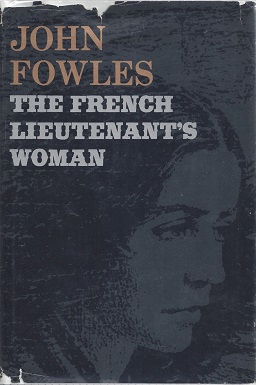
The French Lieutenant's Woman is a 1969 postmodern historical fiction novel by John Fowles. The plot explores the fraught relationship of gentleman and amateur naturalist Charles Smithson and Sarah Woodruff, the former governess and independent woman with whom he falls in love. The novel builds on Fowles' authority in Victorian literature, both following and critiquing many of the conventions of period novels.
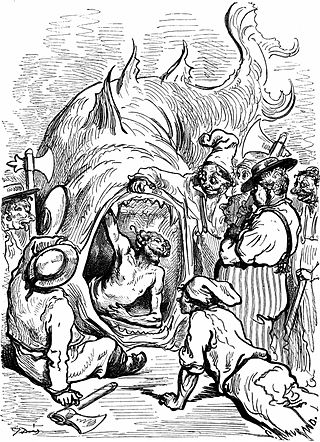
In literature, film, and other such arts, an unreliable narrator is a narrator who cannot be trusted, one whose credibility is compromised. They can be found in fiction and film, and range from children to mature characters. While unreliable narrators are almost by definition first-person narrators, arguments have been made for the existence of unreliable second- and third-person narrators, especially within the context of film and television, but sometimes also in literature.

Margaret Astrid Lindholm Ogden, known by her pen names Robin Hobb and Megan Lindholm, is an American writer of speculative fiction. As Hobb, she is best known for her fantasy novels set in the Realm of the Elderlings, which comprise the Farseer, Liveship Traders and Tawny Man trilogies, the Rain WildChronicles, and the Fitz and the Fool trilogy. Lindholm's writing includes the urban fantasy novel Wizard of the Pigeons and science fiction short stories, among other works. As of 2018, her fiction has been translated into 22 languages and sold more than 4 million copies.

The Alienist is a crime novel by Caleb Carr first published in 1994 and is the first book in the Kreizler series. It takes place in New York City in 1896, and includes appearances by many famous figures of New York society in that era, including Theodore Roosevelt and J. P. Morgan. The story follows Roosevelt, then New York City police commissioner, and Dr. Laszlo Kreizler, as their investigative team attempts to solve gruesome murders through new methods including fingerprinting and psychology. The first murder victim investigated is a 13-year-old immigrant who has had his eyes removed, his genitals removed and stuffed in his mouth, and other injuries. The investigators deal with various interest groups that wish to maintain the status quo regarding the poor immigrant population in New York City. The sequel to the novel is The Angel of Darkness.

The Farseer trilogy is a series of fantasy novels by American author Robin Hobb, published from 1995 to 1997. It is often described as epic fantasy, and as a character-driven and introspective work. Set in and around the fictional realm of the Six Duchies, it tells the story of FitzChivalry Farseer, an illegitimate son of a prince who is trained as an assassin. Political machinations within the royal family threaten his life, and the kingdom is beset by naval raids. Fitz possesses two forms of magic: the telepathic Skill that runs in the royal line, and the socially despised Wit that enables bonding with animals. The series follows his life as he seeks to restore stability to the kingdom.

Tom's Midnight Garden is a children's fantasy novel by English author Philippa Pearce. It was first published in 1958 by Oxford University Press with illustrations by Susan Einzig. The story is about a twelve-year-old Tom who, while staying with his aunt and uncle, slips out at midnight and discovers a magical, mysterious Victorian garden where he befriends a young girl named Hatty. The novel has been reissued in print many times and also adapted for radio, television, cinema, and the stage.

Patrick McGrath is a British novelist, whose work has been categorised as gothic fiction.
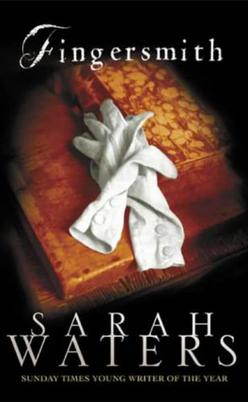
Fingersmith is a 2002 historical crime novel set in Victorian-era Britain by Sarah Waters.
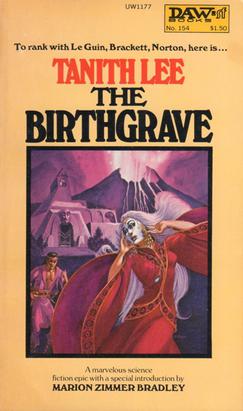
The Birthgrave is a 1975 science fantasy novel by British author Tanith Lee. The novel was Lee's first published novel for adults, and also the first novel in The Birthgrave Trilogy. Inspired by Lee's own personal dreams from her early twenties, the story follows a nameless protagonist through various towns on a journey to discover who she really is and what she is capable of. The Birthgrave received mostly positive reviews and was nominated for the 1975 Nebula Award for best novel.

The Little Stranger is a 2009 gothic novel written by Sarah Waters. It is a ghost story set in a dilapidated mansion in Warwickshire, England in the 1940s. Departing from her earlier themes of lesbian and gay fiction, Waters' fifth novel features a male narrator, a country doctor who makes friends with an old gentry family of declining fortunes who own a very old estate that is crumbling around them. The stress of reconciling the state of their finances with the familial responsibility of keeping the estate coincides with perplexing events which may or may not be of supernatural origin, culminating in tragedy.

Liar is a 2009 young adult thriller novel by Justine Larbalestier, published by Allen & Unwin. It is written in first person from the point of view of Micah Wilkins, who introduces herself to the reader as an unreliable narrator.

The Drowning Girl: A Memoir is a 2012 dark fantasy novel by American writer Caitlín R. Kiernan, set in Providence, Rhode Island. The story's protagonist and unreliable narrator, India Morgan Phelps, has schizophrenia.
Alison Littlewood is a British author of horror novels and short stories. She also writes under the name Alison J. Littlewood and the pen name A. J. Elwood.
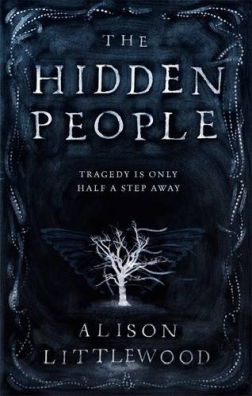
The Hidden People is a historical fantasy and horror novel by English writer Alison Littlewood, first published in the United Kingdom in October 2016 by Jo Fletcher Books. It is based on the 1895 incident in Tipperary, Ireland, where Bridget Cleary was burnt alive by her husband who believed she was a fairy changeling.

Planetfall is a 2015 science fiction novel by British writer Emma Newman. It was first published in the United States as a paperback original in November 2015 by Roc Books, and in the United Kingdom by Gollancz in paperback in February 2018. An audio edition of the book, narrated by Newman, was published in the United States by Blackstone Audio in November 2015, and in the United Kingdom by Orion Publishing in December 2017.
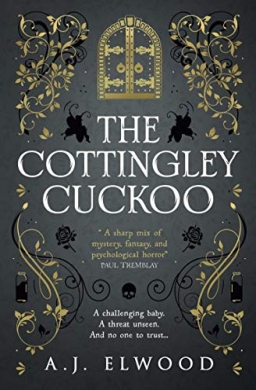
The Cottingley Cuckoo is an urban fantasy and horror novel by A. J. Elwood, pen name of English writer Alison Littlewood. It was first published in the United Kingdom in April 2021 by Titan Books. The book was inspired by the 1920 Cottingley fairy photographs, and is about Rose, a caregiver at the Sunnyside Care Home in the 2020s who is shown letters by a resident that were written in the 1920s soon after the fairy photographs were published. In the letters, the author claims to have also seen fairies, and maintains that he has proof of their existence.

Mistletoe is a fantasy and horror novel by English writer Alison Littlewood. It was first published in the United Kingdom in October 2019 by Jo Fletcher Books, and is about a widow who buys a farmhouse in Yorkshire to start a new life, but is haunted by ghosts of the farm's former occupants.

A Cold Season is a fantasy and horror novel by English writer Alison Littlewood. It is her debut novel and was first published in the United Kingdom in January 2012 by Jo Fletcher Books. It is about a young widow who takes her son to Darnshaw, the village of her birth after her husband went missing in action in Afghanistan; but the village has become sinister and foreboding, and snow storms prevent them from leaving.

A Cold Silence is a fantasy and horror novel by English writer Alison Littlewood. It is the sequel to her debut novel, A Cold Season (2012), and was first published in the United Kingdom in September 2015 by Jo Fletcher Books. It is about a group of friends from the sinister village of Darnshaw who investigate the deaths of several people who had played a computer game called Archeron.
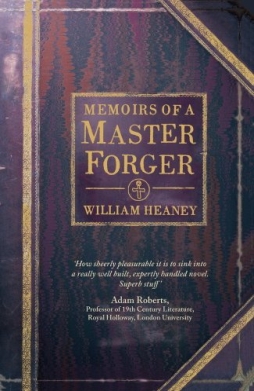
Memoirs of a Master Forger is a fantasy novel by William Heaney, a pseudonym of English writer Graham Joyce. It is about a book forger and demonologist. The novel was first published in the United Kingdom in October 2008 by Victor Gollancz Ltd, and in the United States as How to Make Friends with Demons, credited to Graham Joyce, in November 2009 by Night Shade Books. The book was translated into French by Mélanie Fazi and published as Mémoires d'un maître faussaire in France in February 2009.


















